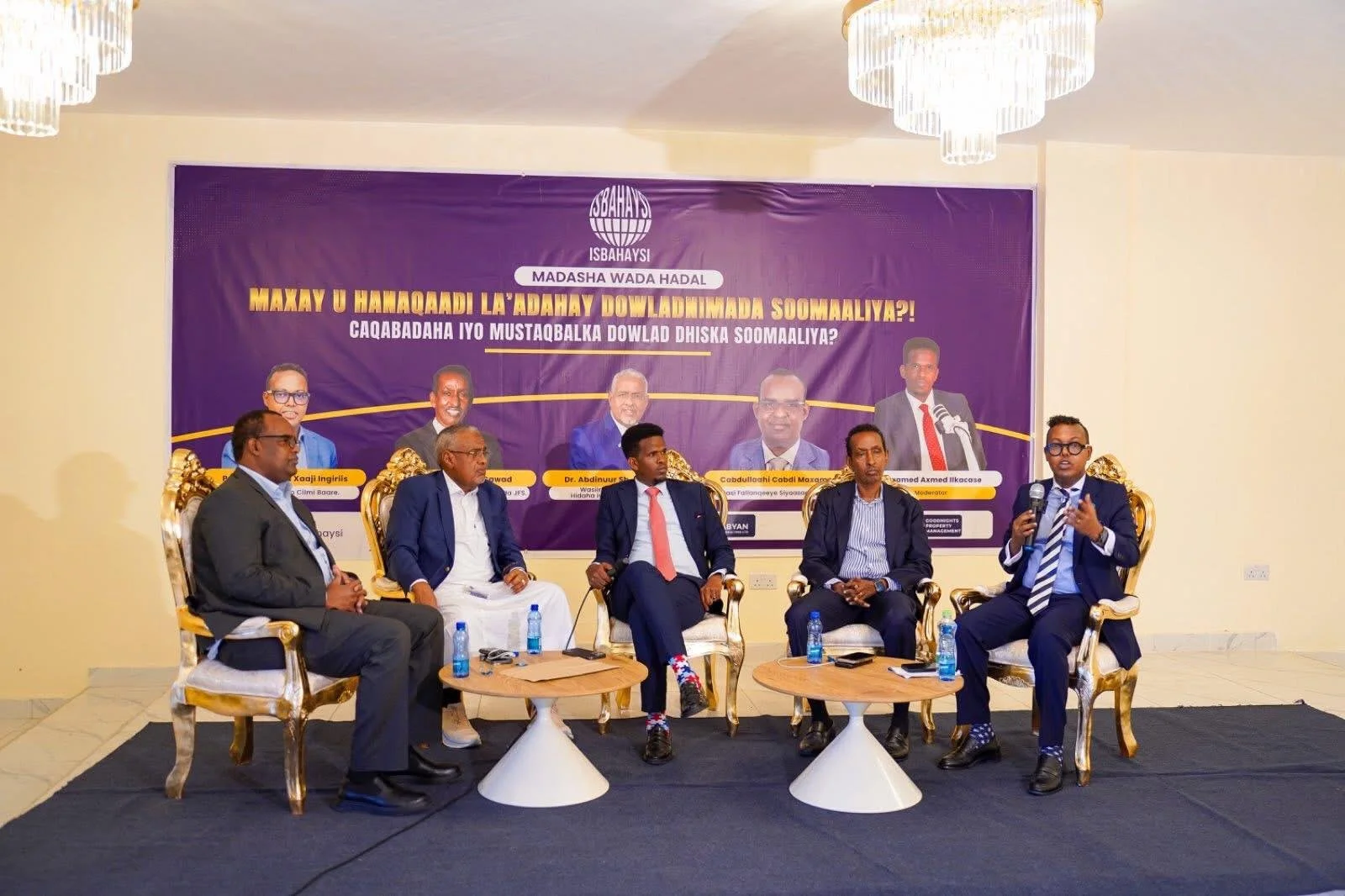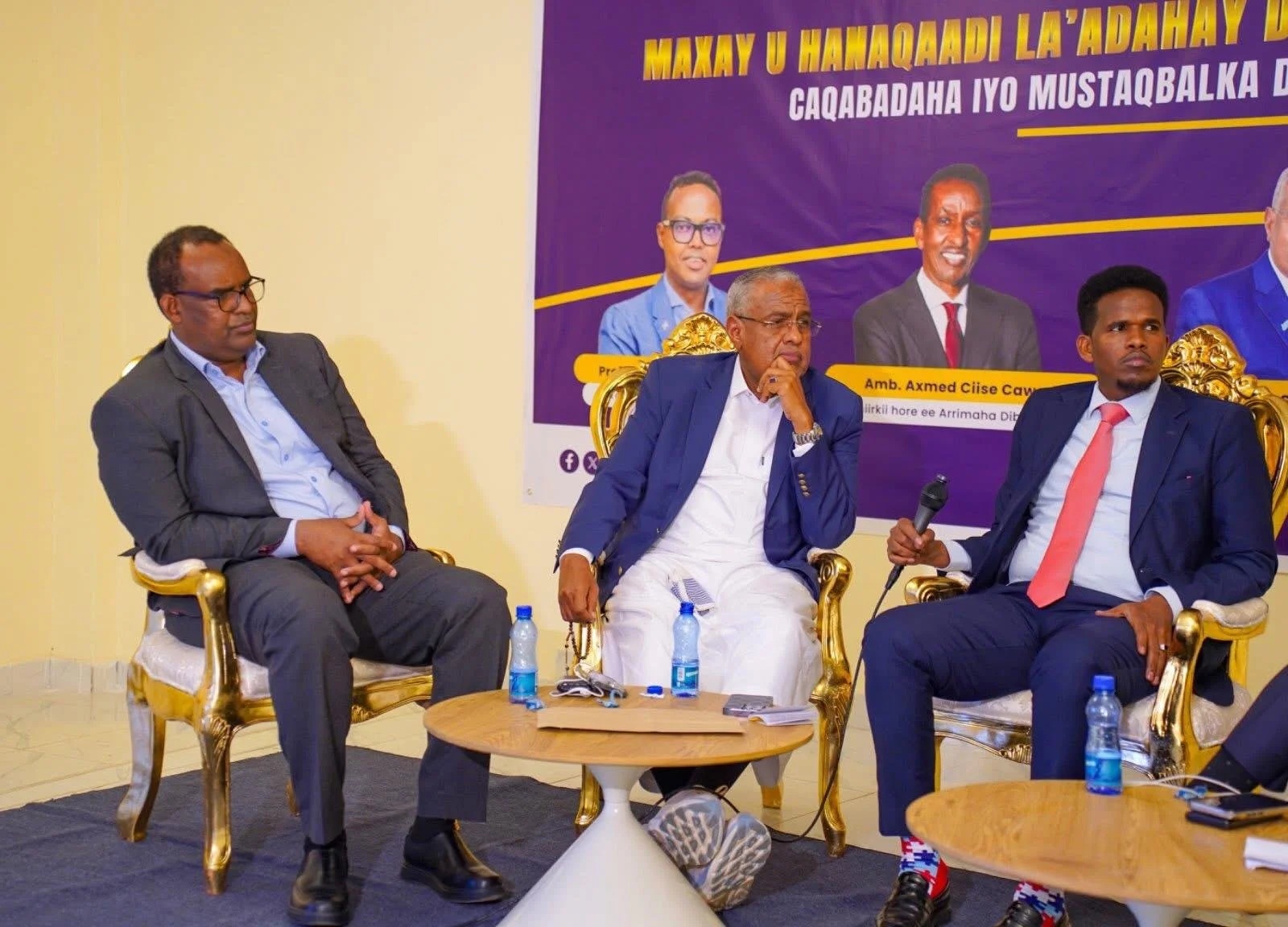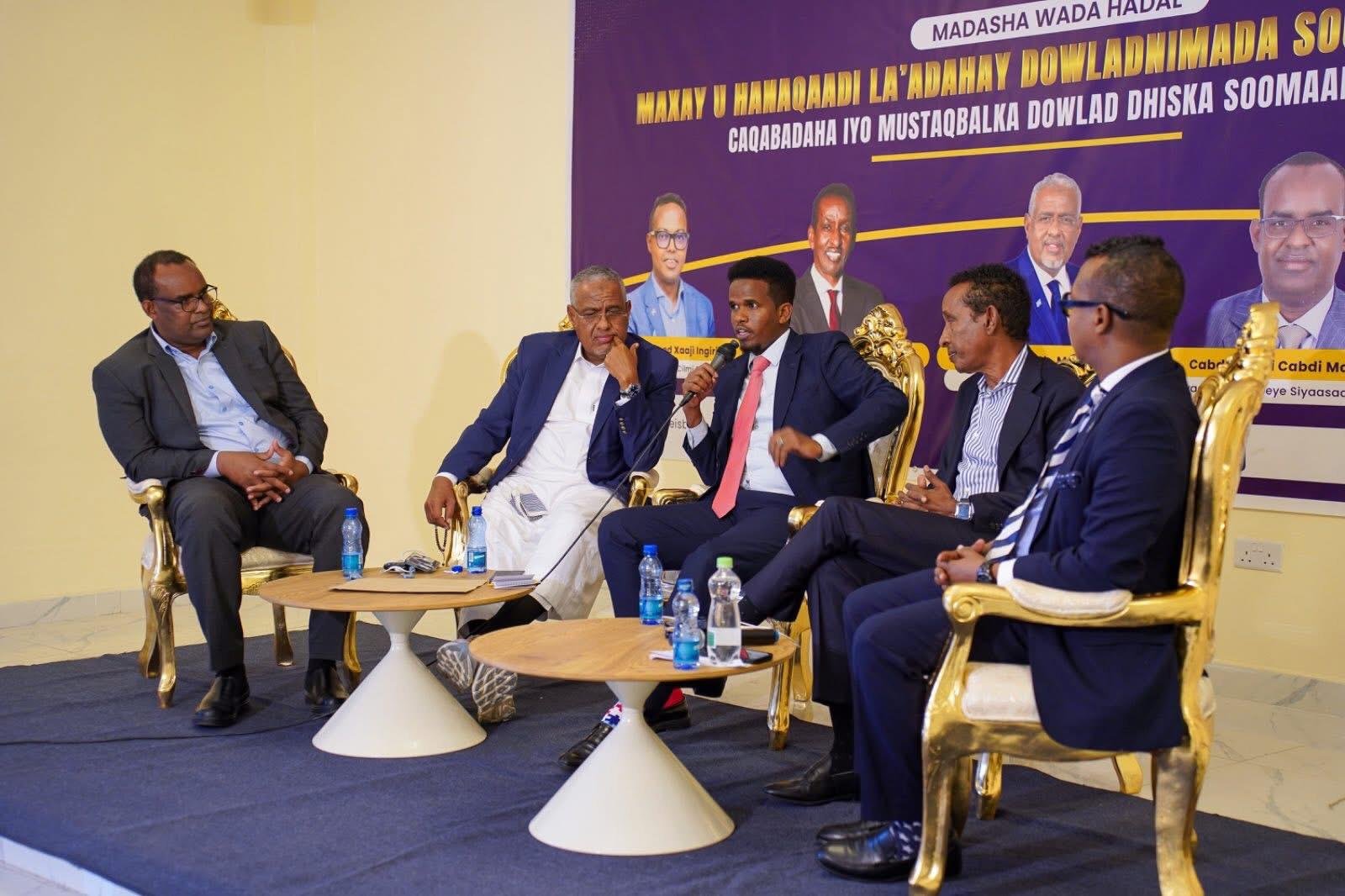The Challenges and Future of State Building in Somalia
The Challenges and Future of State Building in Somalia
On the 2nd of May 2025, our founder and CEO, Dr. Abdinur Sheikh Mohamed took part in a discussion aimed at understanding some of the challenges facing Somalia’s political climate and the setbacks the nation has faced with state building. The discussion centered on unpacking not only the current challenges the country faces, but also delved into lessons that can be implemented that were proposed by the speakers respectively.
State building in Somalia presents a set of complex challenges that first became evident during the collapse of Siad Barre’s regime in 1991. Since that time, the country has struggled to establish a centralized and effective government due to the threat of civil war, clan divisions, and terrorism. While some progress has been made since 1991, effective state building in Somalia is yet to be realized.
As Somalia is a clan-based society with strong clan loyalties present even in politics, clan loyalty sometimes supersedes loyalty to the state. This has led to political fragmentation which undermines the creation of strong national institutions. Clan based power-sharing agreements seem crucial for peace in the Somali context, but they often promote short-term alliances as opposed to long-term solutions.
As elections are set to take place in Somalia sometime next year, Dr. Abdinur emphasized on the importance of justness and the need for leadership that the Somali people can count on in hard times. “When an airplane has turbulence, passengers expect the pilot and the air crew to take charge. It’s not the traveller’s duty to ensure that the plane lands safely”, he said.
The audience, which consisted of a significant number of youths, presented thought-provoking questions to the panel which they answered expertly. Questions on political representation, specifically a question on the minimum age requirement for a president in Somalia, garnered a lot of interest. This tells us that there is a need for more visible youth engagement in political spaces in Somalia as they play a vital role in state building.
One of the most significant solutions that was presented by the panel was the need for a comprehensive and inclusive review of the provisional constitution and a referendum so that the Somali people can get a say on what will govern them. State building has to be an inclusive process and political dialogue has to include those who it will affect the most.
Somalia's future successes in state building depend on its ability to grow from its past and rethink its national identity in a way that emphasizes unity and diversity. If Somali leaders can help cultivate a strong sense of national purpose and shared identity, rebuild its own institutions, commit to peace and reconciliation, only then will Somalia transform from a symbol of state failure into a model of resilience and renewal.




